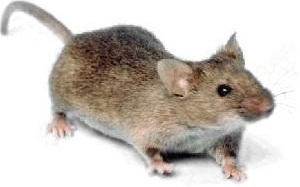Forty-one mice died of dehydration in a Harvard University laboratory this past spring, prompting the federal government to cite Harvard for violating the American Animal Welfare Act.
On April 14, laboratory personnel found the mice dead in their cages, and then noticed that the system that provided water to the mice had malfunctioned, leaving the 41 mice with insufficient water to survive.
Subsequently, the facility reported the incident to the United States Department of Agriculture, which oversees the Animal Welfare Act. In response, the USDA inspected the location on April 24 and filed a report citing the facility for the death of 11 adult deer mice and 30 newborn deer mice. Deer mice, unlike some other types of mice, are subject to the regulations imposed by the Animal Welfare Act.
Prior to the USDA’s inspection, the facility had made changes to the procedures for monitoring the cages, had retrained staff, and had started working on obtaining a new watering system, according to a statement from Faculty of Arts and Sciences spokesperson Jeff Neal.
Neal declined to comment on which facility the incident occurred in, how long the mice were without water, and what additional training the staff went through as a result of the incident.
Alka Chandna, a research associate for People for the Ethical Treatment of Animals, said that she was “terribly disturbed by the extreme pain and distress that was endured by the 41 mice,” though that she was “not surprised to learn that these violations occurred.”
Chandna also questioned the care with which researchers were monitoring the mice. “If mice don’t receive water, they don’t die overnight. It’s a process of a few days,” she said.
According to Chandna, these types of violations rarely lead to fines or penalties
“We certainly hope that citations lead to better behavior, but it has not been our experience that that’s what happens,” she said.
USDA spokesman Dave Sacks said in an email that the inspection has not been completed, and consequently he did not yet know what penalties Harvard would suffer as a result of the incident. He noted that the possible penalties for violations of the Animal Welfare Act range from a official warning letter, which carries no fine, to maximum $10,000 fine per violation.
“[R]est assured that the USDA will fully enforce the Animal Welfare Act,” he said in an email. “Ensuring the welfare of the animals we regulate under the Animal Welfare Act is at the heart of everything we do.”
—Staff writer Maya S. Jonas-Silver can be reached at mayajonas-silver@college.harvard.edu.
Read more in News
Brown Backs Out of Kennedy Institute DebateRecommended Articles
-
Mice Make New Home In Barker CenterAre mice taking Expository Writing? Several students taking classes in the newly-refurbished Barker Center for the Humanities say they've observed
-
Study Unveils Mice That ‘Smell’ LightResearchers from Harvard and the Cold Spring Harbor Laboratory have engineered a mouse that can “smell” light, which offers a novel approach to studying the science of olfaction.
-
 Mice That Can Smell Light? It's Possible.
Mice That Can Smell Light? It's Possible. -
 Harvard Scientists Reverse Aging Symptoms in Mice
Harvard Scientists Reverse Aging Symptoms in Mice -
Harvard Scientists Reverse Aging in MiceResearchers at Harvard Medical School have reversed the aging process in mice and hope to apply this research to combat the symptoms of human aging.
-
Artists Talk and Hawk Their Wares at Alternative Comics MeccaFor the second year in a row, MICE has attracted independent artists, graphic novelists, and writers hoping to showcase and sell their work.













